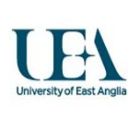Isn’t it possible that a generous, far-reaching welfare state depletes people’s sense of drive, purpose, and self-respect, and enables them to explore chemical forms of happiness?
Jim Geraghty, "Ten Reasons We Can’t, and Shouldn’t, Be Nordic" (12 March 2018), National Review

